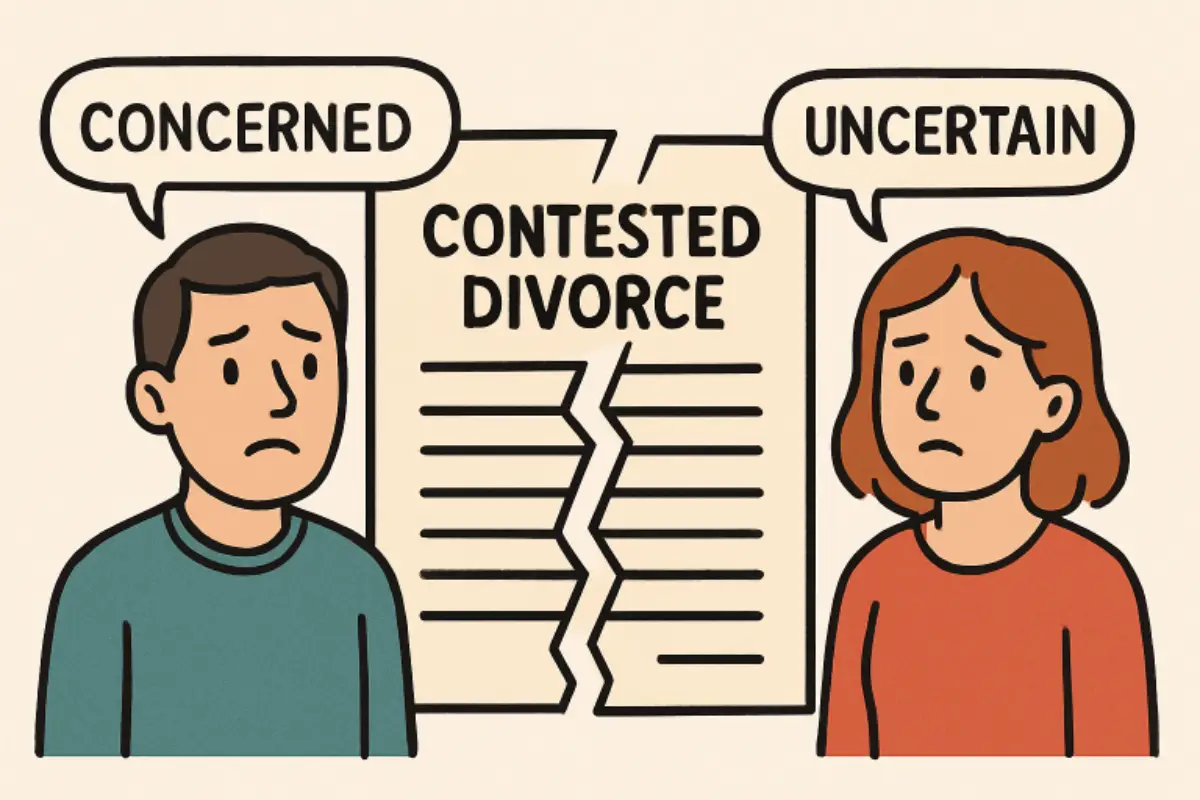Divorce can unfold vastly differently depending on whether both parties agree to the terms. An uncontested divorce describes a situation where both spouses agree on major elements such as asset division, child custody, and support, allowing the process to proceed smoothly and often more quickly. Contrastingly, a contested divorce occurs when spouses cannot agree on one or more key issues, requiring court intervention and potentially a lengthy legal battle. In many cases, a contested divorce Tampa may stem from sharp disagreements over finances, property distribution, parenting plans, or emotional dynamics that have built up over time.
The reasons a divorce becomes contested are as varied as the couples themselves. Differences about lifestyle, trust, and even future expectations can lead to disputes that feel insurmountable. When open negotiation fails or isn’t possible, the courts make determinations based on each party’s information and arguments. For those facing this scenario, understanding each phase and seeking reliable information is key to reducing confusion and stress.
Contents
- 1 Common Disputes During Contested Divorces
- 2 The Legal Process Of A Contested Divorce
- 3 The Importance Of Legal Representation
- 4 Impact On Children And Family Dynamics
- 5 Financial Considerations And Preparation
- 6 How To Prepare For A Contested Divorce
- 7 The Role Of Mediation And Alternative Dispute Resolution
- 8 Resources For Support And Further Information
Common Disputes During Contested Divorces
Most contested divorces revolve around several core issues. Chief among them is child custody and visitation. Determining which parent is awarded primary custody, how time will be divided, and the specifics of visitation can trigger highly emotional debates. Courts focus on the child’s best interests, but reaching agreements remains challenging for many families.
Division of property, assets, and debts also drives frequent disputes. Each spouse may have different views regarding what is fair, especially when significant assets or debt obligations are at stake. Likewise, questions about spousal and child support—how much should be paid and for how long—often lead to heated legal battles.
The Legal Process Of A Contested Divorce
When a divorce becomes contested, it follows a more structured and lengthy legal process. The first step is filing the divorce petition and ensuring the other party is properly served with legal documents. This is followed by the discovery phase, during which both sides collect and exchange documents, evidence, and information relevant to the case. This may include financial records, communication logs, and expert testimonies.
Before trial, courts may require mediation or pre-trial hearings to help the parties settle their disputes without going to trial. If negotiation fails, the case will proceed to trial, where a judge makes the final determinations. Once the trial concludes, the court issues a final judgment that is legally binding for both parties.
The Importance Of Legal Representation
Having competent legal representation is often critical in a contested divorce. Attorneys understand the law and court procedures and provide guidance on what evidence to collect, how to present your case, and how to remain compliant with legal requirements. Skilled lawyers negotiate on your behalf and protect your interests, especially when emotional stakes are high. For some, alternatives such as self-representation or consulting legal aid clinics may be considered, but these routes require a firm grasp of the legal system and carry greater risks.
Impact On Children And Family Dynamics
The process of contested divorce can be emotionally taxing, particularly for children. Parents may notice changes in behavior, academic struggles, or increased anxiety. It’s essential to support children’s emotional well-being throughout the process by maintaining stable routines and open lines of communication. Co-parenting during a contested divorce requires patience and flexibility, with shared goals to prioritize children’s best interests regardless of disputes between the adults.
Financial Considerations And Preparation
Contested divorces often involve substantive financial expenditure due to legal fees, court costs, and additional time spent navigating the process. Budgeting for these fees and setting aside emergency funds helps avoid unnecessary financial strain. Gathering comprehensive financial records, including bank statements, tax returns, and asset inventories, is crucial to ensure an equitable settlement.
How To Prepare For A Contested Divorce
Careful preparation can greatly improve outcomes in a contested divorce. Start by keeping organized files of all critical documents, including communication records, financial statements, and evidence supporting your claims. Additionally, seek out both professional support—such as legal advice and financial planning—and emotional support from friends, family, or dedicated counseling services to help manage the stress of the process.
The Role Of Mediation And Alternative Dispute Resolution
Mediation and other forms of alternative dispute resolution are frequently encouraged by the courts, even in contested divorces. Mediation provides a neutral environment where both parties can negotiate with the help of a third party. While it isn’t always successful, especially if the relationship is highly contentious, mediation can save significant time, money, and emotional distress when it works. Arbitration is another possibility for those seeking a binding decision outside of court—and may be appropriate when traditional mediation isn’t suitable.
Resources For Support And Further Information
Empowering yourself with trustworthy resources can help you better navigate a contested divorce. The American Bar Association’s public legal education resources offer guides and checklists that demystify legal terms, procedures, and broader divorce-related issues. Keeping informed with current information about divorce and child custody also provides insights into how divorce impacts families and what new support structures may be available in the future.
Contested cases often bring heightened stress, extended timelines, and increased legal expenses. While the process may feel overwhelming, preparation and informed decision-making are key to navigating challenges. With patience, clear communication, and the proper legal guidance, individuals can protect their interests and work toward fair, sustainable resolutions despite the conflict.



